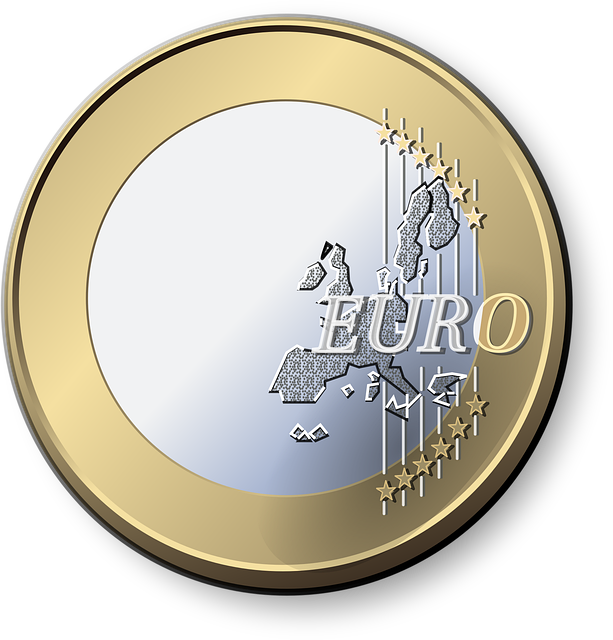Is Finance Halal? An In-Depth Analysis
Author: Jameson Richman Expert
Published On: 2025-08-30
Prepared by Jameson Richman and our team of experts with over a decade of experience in cryptocurrency and digital asset analysis. Learn more about us.
Understanding whether finance is halal is a fundamental concern for Muslims seeking to align their financial activities with Islamic principles. In today’s rapidly evolving financial landscape—characterized by complex instruments, digital currencies, and global markets—the line between permissible and impermissible transactions often becomes blurred. As someone who has personally navigated this intricate terrain, I can attest that discerning the halal status of financial products and services requires comprehensive knowledge, meticulous research, and a nuanced grasp of Islamic jurisprudence (fiqh). The introduction of innovative financial instruments, such as derivatives, sukuk, structured products, and digital assets, further complicates this assessment, demanding ongoing education, scholarly consultation, and critical evaluation. My experiences of trial, error, and continuous learning serve as a guide for Muslims committed to ethical and religiously compliant financial pursuits, emphasizing the importance of staying informed and seeking qualified religious advice to avoid inadvertent violations.

What Does Halal Mean in Finance?
In the context of finance, halal refers to activities, transactions, and financial products that strictly adhere to the commandments of Islamic law (Shariah). These principles are rooted in a moral framework that promotes justice (adalah), social equity, transparency, and social responsibility. The core prohibitions include riba (interest), which Islam explicitly considers exploitative and unjust; gharar (excessive uncertainty or ambiguity), which undermines fairness in transactions; and maysir (gambling), which fosters risk without productive economic contribution. Additionally, investments must avoid sectors deemed haram—such as alcohol, pork, gambling, adult entertainment, and weapons manufacturing—and should support socially beneficial activities that promote economic justice and community well-being. Islamic finance is fundamentally anchored in principles like **tawhid** (the unity of God), **adalah** (justice), and **falah** (prosperity), emphasizing risk-sharing, asset-backed financing, and ethical accountability. These principles aim to create an economic system that prioritizes human welfare and societal development over mere profit maximization. However, the proliferation of complex financial innovations—such as derivatives, structured products, digital currencies, and fintech solutions—poses significant challenges in accurate compliance assessment, especially when some instruments appear superficially compliant but may violate core Islamic principles upon closer examination.
My Journey into Halal Finance
My personal exploration into halal finance was neither straightforward nor immediate. Like many Muslims, I initially relied on conventional banking, stock investments, and personal loans—many of which involved elements conflicting with Islamic teachings. I remember feeling a mix of confusion, frustration, and hope—hope that I could align my financial activities with my faith. For example, conventional savings accounts accrue interest, which is explicitly haram, yet the financial world offers instruments like fixed-income securities and derivatives that often seem compliant but may conceal underlying violations. My experimentation extended to stock markets, cryptocurrency trading, and various online platforms, sometimes leading to inadvertent breaches or uncertainties. Over time, persistent research, engagement with knowledgeable scholars, and participation in Islamic finance seminars helped me develop a clearer understanding of what constitutes halal finance. Each mistake or doubt became a vital learning opportunity, refining my approach and enabling me to pursue financial activities that uphold my religious commitments while maintaining ethical integrity. This journey underscores the importance of continual education, patience, and active seeking of Islamic scholarly guidance.
The Role of Islamic Finance Institutions
A pivotal element in my journey has been the emergence of dedicated Islamic finance institutions and scholars. These entities develop and offer financial products explicitly designed to be compliant with Shariah. Examples include Islamic banks, halal mutual funds, Islamic insurance (takaful), and Shariah-compliant credit cards. Their offerings undergo rigorous scrutiny by Shariah boards composed of qualified Islamic scholars, who analyze contractual structures, underlying assets, and operational mechanisms to ensure compliance. For instance, Islamic banks predominantly operate on profit-and-loss sharing models like Mudarabah (trust financing) and Musharakah (joint venture), avoiding interest-based lending altogether. Many reputable institutions publish detailed fatwas, compliance certificates, and periodic reports, enhancing transparency and accountability. It is crucial to verify the credibility of these institutions and to understand the nuances of scholarly interpretations, especially since different schools of thought (Hanafi, Maliki, Shafi’i, Hanbali) may have differing views on specific practices. Engaging with these institutions and staying updated on their rulings helps ensure your investments and transactions remain both compliant and ethically sound, fostering trust and confidence in your financial endeavors.

Cryptocurrency and Halal Finance
Cryptocurrency presents both promising opportunities and significant challenges for Muslims interested in halal finance. Blockchain technology and certain digital assets—particularly those without interest-based models—may align with Islamic principles if used responsibly and ethically. For example, cryptocurrencies like Bitcoin and Ethereum serve as decentralized stores of value or mediums of exchange, provided they are not linked to haram industries or illegal activities. However, the high volatility, unregulated markets, and speculative nature of many tokens generate gharar concerns, making cautious engagement essential. My experience underscores the importance of diligent research: understanding the technology, utility, and community support behind a crypto project is vital. Moreover, examining whether the cryptocurrency is used for illegal activities or supports haram sectors helps prevent inadvertent violations. Platforms such as Binance, Mexc, Bitget, and Bybit facilitate trading in digital assets, but traders must scrutinize the nature of tokens and trading practices. It is advisable to consult scholars specialized in Islamic digital finance to gain insights into complex issues like tokenomics, smart contracts, and the potential for Shariah compliance. As the field evolves, ongoing scholarly dialogue, fatwas, and community-based research are essential to establish clear guidelines for halal digital asset trading and investment.
Using Reputable Platforms for Halal Investment
When I first explored online investment platforms, I prioritized transparency, clear fee structures, and endorsements from reputable Islamic finance authorities. Platforms like Binance, Mexc, Bitget, and Bybit, which I used for crypto trading, are not explicitly Islamic but can be used responsibly with appropriate precautions. To maintain halal standards, I adapted my trading practices: avoiding leverage, interest-bearing products, and speculative trades, and focusing solely on assets and transactions consistent with Islamic principles. It is imperative to conduct thorough due diligence: analyze contractual terms, identify whether underlying assets are halal, and consult qualified Islamic scholars or financial advisors—especially when engaging in complex derivatives, futures, or leveraged trading. Ensuring your trading activities align with Islamic ethics requires ongoing vigilance, continuous learning, and sometimes, seeking fatwas or scholarly guidance to clarify ambiguous situations. Utilizing platforms that provide transparency, clear disclosures, and Shariah compliance certifications can significantly aid in maintaining halal integrity in your digital transactions.
Challenges and Considerations
One of the main challenges in halal finance is the lack of universally accepted standards. Different scholars, institutions, and schools of thought may interpret the permissibility of certain financial activities differently. For example, some scholars may permit investment in certain sukuk structures or Islamic bonds, while others might see specific features—like embedded guarantees, complex contractual arrangements, or certain types of derivatives—as problematic. This divergence can cause confusion and uncertainty for individual investors striving to remain compliant. My advice is to follow a reputable Islamic authority whose interpretations resonate with your understanding and to maintain consistency in your adherence. Conduct meticulous due diligence: scrutinize the purpose, structure, and underlying assets of financial products, and stay updated on scholarly opinions, as rulings may evolve with financial innovations. Recognizing that Islamic finance is a dynamic field, staying engaged with scholarly developments enhances your ability to make informed, compliant decisions, and helps foster a more ethically grounded investment approach.

Conclusion: Is Finance Truly Halal?
After years of diligent research, practical experimentation, and guidance from qualified Islamic scholars, I am confident that halal finance is achievable, albeit challenging. It demands vigilance, continuous education, and a steadfast commitment to Islamic ethical principles. The core injunctions—avoiding riba, investing ethically, and selecting Shariah-compliant products—serve as the foundation of halal finance. The journey involves navigating uncertainties, addressing dilemmas, and occasionally encountering setbacks. However, perseverance, ongoing learning, and consulting credible scholars are essential tools to remain on the right path. Ultimately, halal finance is not merely about avoiding haram; it encompasses actively promoting justice, fairness, and social responsibility in all financial dealings. Striving for this balance not only fulfills a religious obligation but also contributes to building a more equitable and compassionate financial system that benefits society at large. This holistic approach aligns personal financial goals with broader ethical and social values, fostering a sustainable and just economy.
References and Resources
For those seeking to deepen their understanding, reputable resources include the Islamic Finance Qualification (IFQ), standards set by the Accounting and Auditing Organization for Islamic Financial Institutions (AAOIFI), and publications from the Islamic Financial Services Board (IFSB). Consulting dedicated fatwa councils and Islamic finance scholars—such as Dar al-Ifta, national Fiqh councils, and recognized academic experts—provides authoritative guidance. Online platforms like Binance, Mexc, Bitget, and Bybit offer opportunities for digital currency trading, but using them responsibly requires ongoing diligence to ensure compliance with Islamic principles. Regular participation in Islamic finance seminars, continuous study of scholarly opinions, and proactive consultation with knowledgeable scholars help navigate the complex, dynamic landscape of halal finance, ensuring that your financial pursuits remain ethically sound, spiritually fulfilling, and aligned with your religious values.